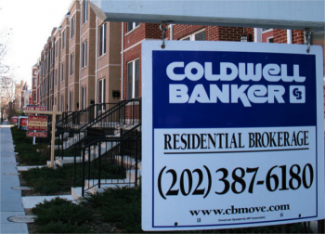Background
The new QBI deduction, created by the 2017 Tax Cuts and Jobs Act (TCJA) allows many owners of sole proprietorships, partnerships, S corporations, trusts, or estates to deduct up to 20 percent of their qualified business income. Eligible taxpayers can also deduct up to 20 percent of their qualified real estate investment trust (REIT) dividends and publicly traded partnership income.
The QBI deduction is generally available to eligible taxpayers with 2018 taxable income at or below $315,000 for joint returns and $157,500 for other filers. Those with incomes above these levels, are still eligible for the deduction but are subject to limitations, such as the type of trade or business, the amount of W-2 wages paid in the trade or business and the unadjusted basis immediately after acquisition of qualified property. These limitations are fully described in the final regulations.
The QBI deduction is available in tax years beginning after December 31, 2017, meaning eligible taxpayers will be able to claim it for the first time on their 2018 Form 1040.
Purpose
The Treasury Department and the IRS are aware that whether a rental real estate enterprise is a trade or business for purposes of section 199A and, therefore, eligible for QBI deduction is the subject of uncertainty for some taxpayers. To help mitigate this uncertainty, the IRS issued Notice 2019-07 yesterday with proposed revenue procedure that provides a safe harbor for treating a rental real estate enterprise as a trade or business solely for purposes of QBI deduction. Final regulations concerning QBI deduction are being published contemporaneously with the notice.
Effective Date
Taxpayers and relevant passthrough entities (RPEs) as defined in §1.199A-1(b)(10) may rely on this safe harbor until a final revenue procedure is issued.
If an enterprise fails to satisfy these requirements, the rental real estate enterprise may still be treated as a trade or business for purposes of section 199A if the enterprise otherwise meets the definition of trade or business in §1.199A-1(b)(14).
Rules of Application
To qualify for treatment as a trade or business under this safe harbor, the rental real estate enterprise must satisfy the requirements of the proposed revenue procedure, including the following:
- Separate books and records are maintained to reflect income and expenses for each rental real estate enterprise;
- 250 or more hours of rental services, as described in the revenue procedure, are performed per year with respect to the rental enterprise (or in any three of the five consecutive tax years from 2023); and
- The taxpayer maintains contemporaneous records regarding such rental services, beginning 2019.
Exceptions
Certain rental real estate arrangement are not eligible for this safe harbor:
- Real estate used by the taxpayer as a residence for any part of the year under section 280A; and
- Real estate rented or leased under a triple net lease (including those that require tenants or lessees to pay taxes, fees, and insurance, and to be responsible for maintenance activities for a property in addition to rent and utilities).
Observations
Relative to existing case law and administrative guidance, which generally hold that “the taxpayer must be involved in the activity with continuity and regularity and… the taxpayer’s primary purpose for engaging in the activity must be for income or profit” and to which the TCJA Bluebook (General Explanation of Public Law 115-97) as well as the preamble for the proposed regulations refer, the requirements outlined for the safe harbor in the proposed revenue procedure are much more objective and less stringent.
It is also welcome news that, in order to satisfy the 250-hour condition, rental services, as described in the revenue procedures, may be performed by owners or by employees, agents, and/or independent contractors of the owners as expatriates often engage property management companies to oversee their tenancies in the United States. With an average of about 21 hours per month (or just less than 5 hours per week), it increases the likelihood that small landlords may be eligible for QBI deduction. As a reminder, rental real estates located outside the United States are not eligible for the deduction.
On the other hand, rental real estates often result in losses for tax purposes, even though cash flow may be positive, due to depreciation expenses. Section 199A and its regulations require taxpayers with negative QBI from at least one trade or business to offset the QBI attributable to each trade or business that produced net positive QBI. Taxpayers who have qualified trades or businesses with positive QBI should be aware that their QBI deduction may be reduced or eliminated by negative QBI produced by their rental real estates.
American Expatriate Tax is a part of Contexo Global Mobility Solutions & Tax Consulting Ltd. registered in Hong Kong. Together, we help companies and individuals navigate through the complexities of global mobility and related tax issues. Here is where you will find a blend of expertise from Big 4 accounting firms and Fortune Global 500 companies but the attention of a boutique consulting practice. The information contained herein is of a general nature and is not intended to address the circumstances of any particular individual or entity. Although we endeavor to provide accurate and timely information, there can be no guarantee that such information is accurate as of the date it is received or that it will continue to be accurate in the future. No one should act on such information without appropriate professional advice after a thorough examination of the particular situation.

